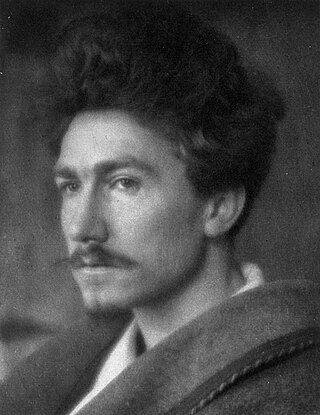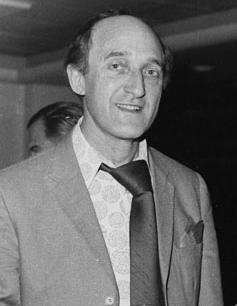
British Columbia is the westernmost province of Canada. Situated between the Pacific Ocean and the Rocky Mountains, the province has a diverse geography, with rugged landscapes that include rocky coastlines, sandy beaches, forests, lakes, mountains, inland deserts and grassy plains. British Columbia borders the province of Alberta to the east, the territories of Yukon and the Northwest Territories to the north, and the US states of Washington, Idaho and Montana to the south and Alaska to the northwest. With an estimated population of over 5.4 million as of 2023, it is Canada's third-most populous province. The capital of British Columbia is Victoria, while the province's largest city is Vancouver. Vancouver and its suburbs together make up the third-largest metropolitan area in Canada; with the 2021 census recording 2.6 million people in Metro Vancouver.

Dwight Lyman Moody, also known as D. L. Moody, was an American evangelist and publisher connected with Keswickianism, who founded the Moody Church, Northfield School and Mount Hermon School in Massachusetts, Moody Bible Institute and Moody Publishers. One of his most famous quotes was "Faith makes all things possible... Love makes all things easy." Moody gave up his lucrative boot and shoe business to devote his life to revivalism, working first in the Civil War with Union troops through YMCA in the United States Christian Commission. In Chicago, he built one of the major evangelical centers in the nation, which is still active. Working with singer Ira Sankey, he toured the country and the British Isles, drawing large crowds with a dynamic speaking style.

Ezra Weston Loomis Pound was an expatriate American poet and critic, a major figure in the early modernist poetry movement, and a collaborator in Fascist Italy and the Salò Republic during World War II. His works include Ripostes (1912), Hugh Selwyn Mauberley (1920), and his 800-page epic poem, The Cantos.

The Moody Blues were an English rock band formed in Birmingham in May 1964. The band initially consisted of drummer Graeme Edge, guitarist and vocalist Denny Laine, keyboardist and vocalist Mike Pinder, multi-instrumentalist and vocalist Ray Thomas, and bassist and vocalist Clint Warwick; Edge was the group's sole continuous member throughout their entire history. Originally part of the British beat and R&B scene of the early–mid 1960s, the band came to prominence with the UK No. 1 and US Top 10 single "Go Now" in late 1964/early 1965. Laine and Warwick left the band by the end of 1966, being replaced by guitarist and vocalist Justin Hayward and bassist and vocalist John Lodge. They embraced the psychedelic rock movement of the late 1960s, with their second album, 1967's Days of Future Passed, being a fusion of rock with classical music that established the band as pioneers in the development of art rock and progressive rock. It has been described as a "landmark" and "one of the first successful concept albums".

Ron Moody was an English actor, composer, singer and writer. He was best known for his portrayal of Fagin in Oliver! (1968) and its 1983 Broadway revival. Moody earned a Golden Globe Award and an Academy Award nomination for the film, as well as a Tony Award nomination for the stage production. Other notable projects include The Mouse on the Moon (1963), Mel Brooks' The Twelve Chairs (1970) and Flight of the Doves (1971), in which Moody shared the screen with Oliver! co-star Jack Wild.
Charles Caldwell Ryrie was an American Bible scholar and Christian theologian. He served as professor of systematic theology and dean of doctoral studies at Dallas Theological Seminary and as president and professor at what is now Cairn University. After his retirement from Dallas Theological Seminary he also taught courses for Tyndale Theological Seminary. He is considered one of the most influential American theologians of the 20th century. He was the editor of The Ryrie Study Bible by Moody Publishers, containing more than 10,000 of Ryrie's explanatory notes. First published in 1978, it has sold more than 2 million copies. He was a notable proponent of classic premillennial dispensationalism.

David Justin Hayward is an English musician. He was the guitarist and frontman of the rock band the Moody Blues from 1966 until that group's dissolution in 2018. He became the group's principal vocalist and its most prolific songwriter over the 1967–1974 period, and composed several international hit singles for the band.

Lovehunter is the second studio album by British band Whitesnake, released in 1979. It charted at No. 29 on the UK Albums Chart.

Charles Manners was a British bass singer and opera company manager. His earliest performances were with the D'Oyly Carte Opera Company, first as a chorus member and then as a principal, creating the role of Private Willis in Iolanthe in 1882. After leaving D'Oyly Carte the following year, he sang with several opera companies, most notably the Carl Rosa Opera Company and Covent Garden. In 1898, he and his wife, the singer Fanny Moody, set up their own company, dedicated to presenting opera in English.
Harold Arundel Moody was a Jamaican-born physician who emigrated to the United Kingdom, where he campaigned against racial prejudice and established the League of Coloured Peoples in 1931 with the support of the Quakers.

The Colony of British Columbia was a crown colony in British North America from 1858 until 1866 that was founded by Richard Clement Moody, who was selected to 'found a second England on the shores of the Pacific', who was Chief Commissioner of Lands and Works for British Columbia and the first Lieutenant-Governor of British Columbia. Prior to the arrival of Moody's Royal Engineers, Columbia Detachment, the Colony's supreme authority was its Governor James Douglas, who was the Governor of the neighbouring colony of Vancouver Island.

John Charles Lodge is an English musician, best known as bass guitarist, vocalist, and songwriter of the longstanding rock band the Moody Blues. He has also worked as a record producer and has collaborated with other musicians outside the band. In 2018, Lodge was inducted into the Rock and Roll Hall of Fame as a member of the Moody Blues.
James Moody may refer to:
Robert Moodie may refer to:
Moody is an English surname. It ranks in the top 200 most common surnames in English speaking nations. The earliest known example dates from the 12th century in a Devonshire early English charter where the name Alwine 'Modig' is mentioned. Recent census research suggests that the surname has been most consistently populous in Somerset, Wiltshire and Hampshire and also in areas of northeast England. There is also a high incidence of the similar-sounding surname 'Moodie' in Scotland, in particular Orkney, although this variant, ending "ie", has possible Norse/Celtic origins. The surname Moody was also carried to areas of Ireland settled by the early English. Although the most intensive areas of occurrence match areas of dense Anglo-Saxon habitation after 1066, it is difficult to determine if the name is Anglo-Saxon or Nordic/Viking in origin, since all Germanic countries used the word 'Modig' or 'Mutig' to indicate someone who was bold, impetuous or brave. Surnames were increasingly given through the early Middle Ages to assist taxation and an increasing incidence of the name can be followed in such documents as the Hundred Rolls, early English charters and general medieval assizes associated with such actions as baronial struggles, Crusades or Angevin campaigns in France. In the Netherlands, there is a family name 'Mudde' derived from a Scottish immigrant Robert Moodie.

The Archbishop of Armagh is an archiepiscopal title which takes its name from the city of Armagh in Northern Ireland. Since the Reformation, there have been parallel apostolic successions to the title: one in the Roman Catholic Church and the other in the Church of Ireland. The archbishop of each denomination also holds the title of Primate of All Ireland.
Thomas or Tom Moody may refer to:

Rizzle Kicks were a British hip hop duo from Brighton, England, consisting of Jordan "Rizzle" Stephens and Harley "Sylvester" Alexander-Sule. Their debut album, Stereo Typical, was released in 2011. As of May 2012, Rizzle Kicks had sold over 1 million singles and over 600,000 albums in the UK.
David or Dave Moody may refer to:











